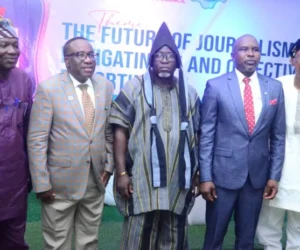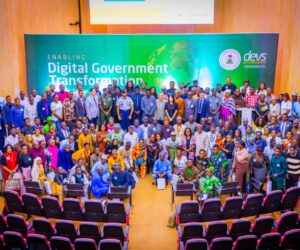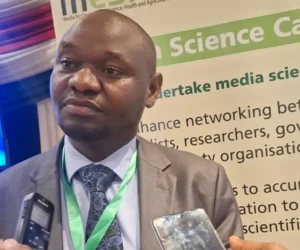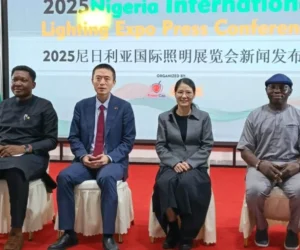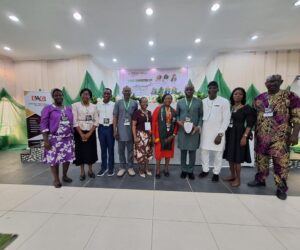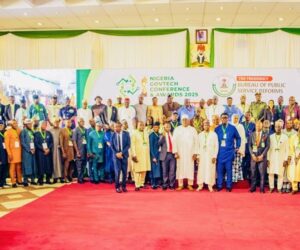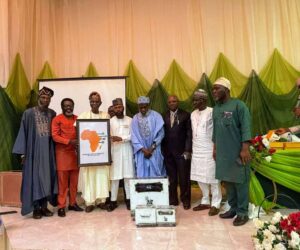By Olasunkanmi Onifade
The Nigerian Communications Satellite (NIGCOMSAT) Ltd says the country’s the country’s digital broadcast subsector has expanded by 35 per cent to 75 per cent utilisation in two years.
It said this represented a milestone in the country’s digital transformation drive.
The Managing Director of NIGCOMSAT, Mrs Jane Egerton-Idehen, said this on Monday in Abuja at a retreat with the theme: ‘Aligning for the Future: Innovation, Collaboration, and Sustainable Growth.’
According to her the theme reflects NIGCOMSAT’s commitment to driving Nigeria’s digital transformation and positioning itself as a global satellite industry leader.
She said one of the notable achievements in its broadcast segment was the Digital Switch Over (DSO) project, saying it was not just a technical milestone but also a national service.
“This growth is a testament to the organization’s improved service delivery and stronger engagement with partners and clients.
“The DSO project, a collaborative effort with the National Broadcasting Commission (NBC), is a key milestone in Nigeria’s digital transformation.
“NIGCOMSAT’s contribution to the project is enabling digital broadcasting penetration across the federation, cementing the organisation’s position at the centre of Nigeria’s digital transformation,” she said.
Egerton-Idehen said the achievements were expected to drive revenue growth, with target of three billion naira in annual revenue and eight billion naira in revenue within three years.
She said the organisation’s expansion of broadband services and private sector partnership was key to achieving the goals.
“We cannot move boldly into the future without addressing the weight of the past. Our debt profile — both financial and operational — is a reality we must confront with strategy, discipline, and creativity.
“These are our headwinds. We acknowledge them openly because honesty is the first step toward transformation.,” Egerton-Idehen said.
She said in spite of challenges such as economic barriers and competition, the organisation remained optimistic about the future.
“We must out-innovate the market, deepen partnerships, and build a culture of solution-focused, profit-driven, and people-centered excellence.”
“The key initiatives include transitioning to software-defined satellites, expanding broadband services, and the NIGCOMSAT Accelerator for the Space Ecosystem.
“The organisation is prioritising public-private partnerships, branding, and communication, as well as investing in its people,” she said.
Egerton-Idehen said every member of staff of the organisation should be prepared for the future , adding that infrastructure alone was not enough to achieve desired goals.
Slowly but steadily, Nigerians are beginning to understand who we are, what we do, and why we matter.
The Chief Executive Officer, Data Science Nigeria, Mr Olubayo Adekanbi, said satellite-based economy could revolutionise key sectors such as agriculture, health, and education, creating new job opportunities and increasing productivity.
“By providing internet access to remote areas, satellite technology can bridge the digital divide and ensure no one is left behind.
“Satellite internet can reach remote schools, with Brazil covering over 90,000 schools as a successful example.
“Youths can access job opportunities and tech-enabled services in their communities, thereby reducing urban migration,” Adekanbi said.
He also said that satellite technology could boost traditional businesses including agriculture, multiplying value and prosperity.
The Senior Manager, Broadcasting, NIGCOMSAT, Mr Quadri Yunusa said the organisation had expanded its satellite coverage, reaching over 22 countries in Africa.
He said the organisation operated on various bands, including C-Band, KU-Band, KA-Band, and L-Band, providing broadband and broadcast services across the country.
“With over 100 TV channels on its broadcast platform, including NTA and other individual channels, the organisation is making significant strides in promoting digital inclusiveness.
“The Digital Switchover program is currently underway, with over 30 channels running on the satellite, and plans to increase this number to 90 TV channels.
“The organisation’s footprint extends beyond Africa, with presence in Europe, around Germany, and in Asia, around Pakistan and China border,” he said.
Yunusa said there was the need for government to support rural communities access those services, suggesting partnerships with international agencies interested in sustainable development goals as one of the solutions. (NAN)
Edited by Uche Anunne


